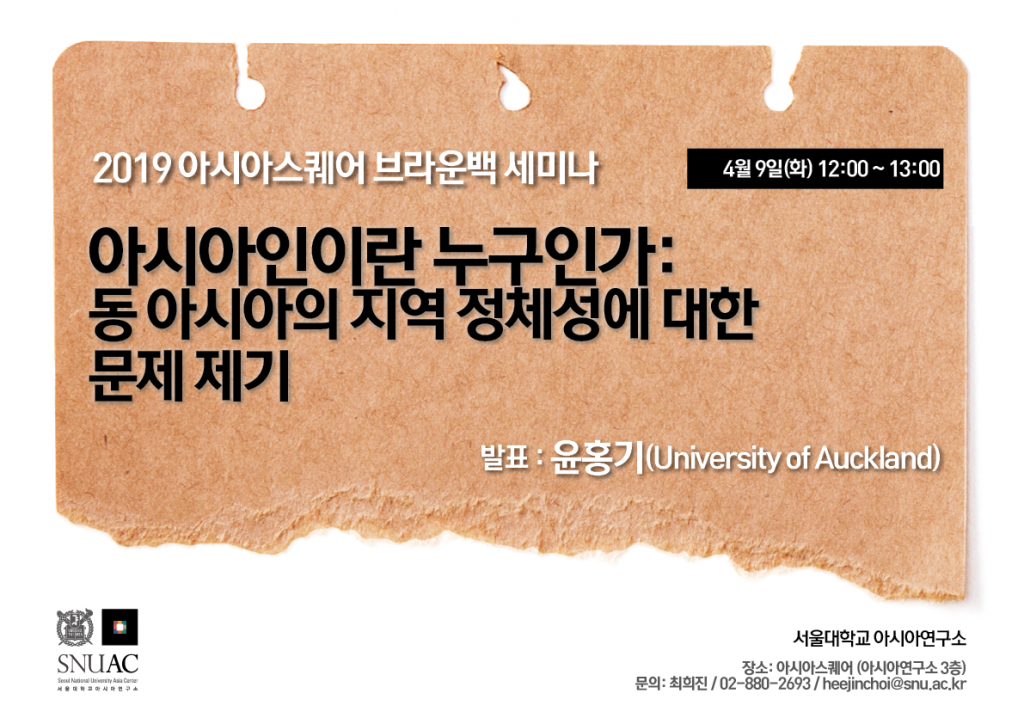
Who Are the Asians? : Problematizing East Asia’s Regional Identity
Date: April 9, Tuesday 12:00-13:00
Location: Asia Square (SNU Asia Center 3F)
The word, Asia, is said to be originated from what the Greeks used to refer to the outer Eastern area of Greece and as of now, it means the whole Eastern continent of Europe. Who do we refer to as Asians? Those who live in the Asian continent include Koreans, Chinese, Japanese, Indians, and the Arabs in the Middle East and Russians in Siberia, and can we call all of them as Asians? Unlike Europe, Asia has different tribes, languages, religion and food and have little historical connections with each other, thus making it hard to say that they all belong the one cultural region. Europe can be compared to parts of the Asian continent, such as East Asia, West Asia, Central Asia and South Asia, etc, but comparing Europe with the whole Asian continent is difficult. Is East Asia Northeast Asia? Is it Far East? Or is it Far West? It is not adequate to look at Asia from the European perspective. The meaning of Asian cultures that are contrasted to European cultures is confusing. East Asia’s regional identity can be further emphasized when comparing East Asia with Europe. As examples of the East Asian identity, we can mention Confucianism and Mahayana Buddhism as social ethics, the usage of Chinese characters, and the usage of soy sauce and chopsticks, and I think that the culture of Fengshui, which was created and originated from China, is also one of the common features that encompass East Asia as one region.
Information about the Speaker
Yoon Hong-key was born and spent his youth in the countryside. He got a undergraduate degree in the Department of Geography in Seoul National University and He got a Ph.D degree by majoring in cultural geography in U.C. Berkeley. He has been teaching cultural geography and East Asia, mostly Fengshui Thought and the Landscape of Maori culture of New Zealand, in the department of Geography in University of Auckland from 1976
Major Publications include Geomantic Relationships between Culture and Nature in Korea (1976), Maori Mind, Maori Land (1986), The Culture of Fengshui in Korea (2006), <DDangeui Maeum>(2011)과 A collection of poems, <Where is my hometown> (1977>, etc. edited work includes P’ungsu: A Study of Geomancy in Korea (2017).
